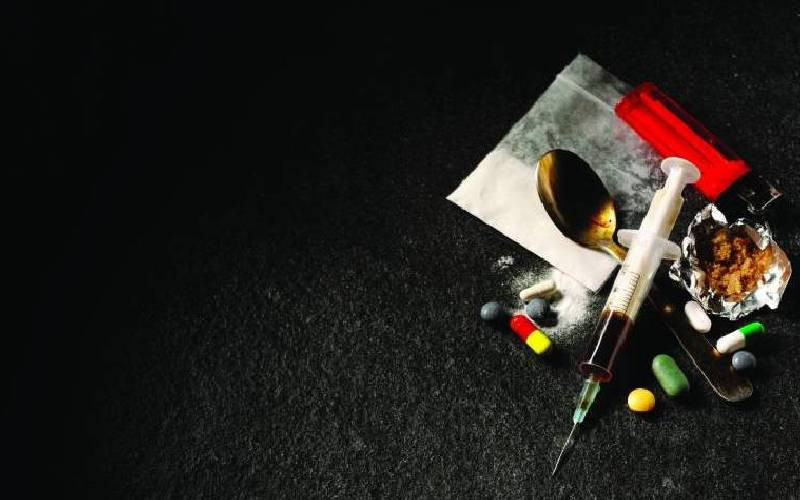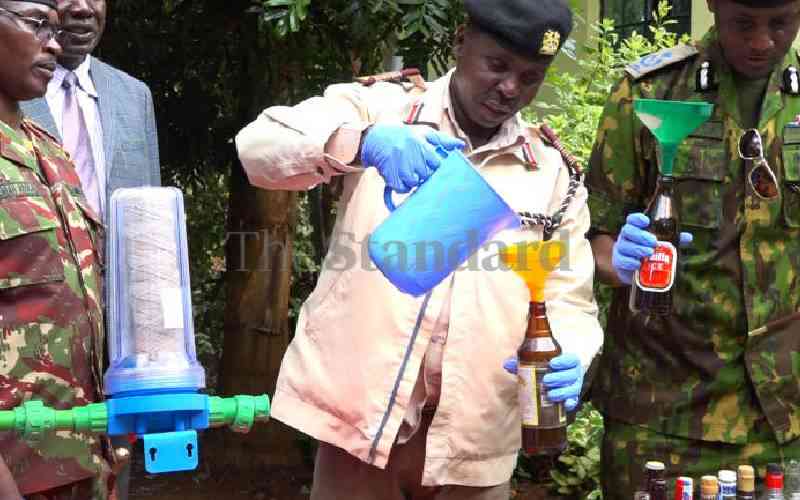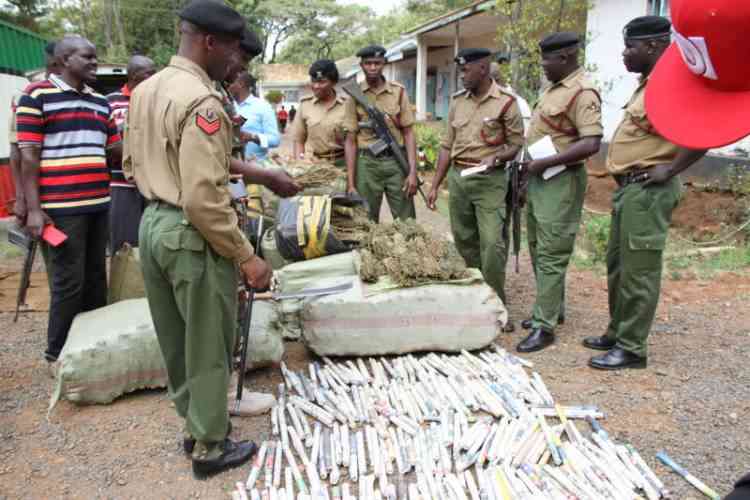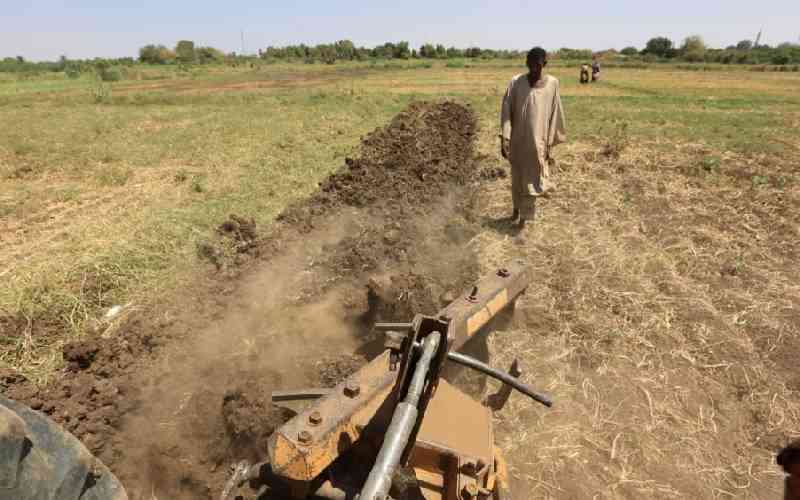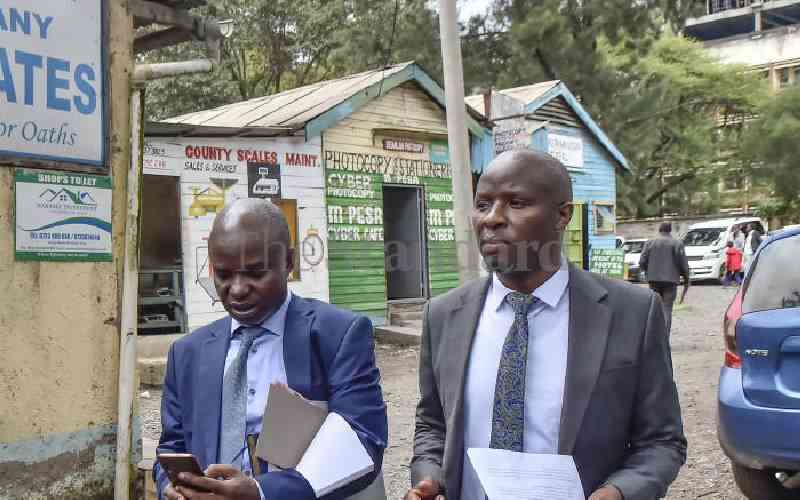By JAMES GITAU
Recently, we have witnessed pretty disturbing behaviour from our youth. Let me narrate a few incidents that have been close to me to bring this into perspective.
1. At about 4pm, in a sleepy village of Mwea in Kirinyaga County, a Form One student reportedly runs amok and, without any apparent provocation, attacks his neighbour, a 67-year-old retired airline employee.
The defenceless victim, who had suffered a stroke several years ago, is clobbered repeatedly. The life of the man, the father to one of my employees, is brought to a grisly end.
The actions of the attacker are blamed on recreational drugs, which are said to be sold openly within the village. The Government is blamed for not doing enough to stop the sale of drugs.
2. It is about 7.30pm and there is a blackout on State House Road. Among the areas affected are the University of Nairobi halls of residence.
I am driving from Ufungamano Building, with the intention of going to Kileleshwa through Aboretum Drive. As I join State House Road, the headlights of my vehicle shine on a group of about ten young men who are moving from car to car, yanking the doors open and robbing the helpless motorists stuck in a huge traffic jam.
The young men move towards me menacingly. They bang the side of my car as they try to pull open the doors, which are locked. They motion me to open the doors and threaten to smash the windows with stones.
I lean on the horn of my car and hoot continuously. I am relying on the simple theory that thieves are cowards and do not like attention or noise. They quickly move on to the cars behind me, and through the rearview mirror, I can see them continue their spree.
I call the county police chief, who says he will dispatch some officers to the area.
Similar stories are reported regularly in the media. It is a societal cancer we must face or perish.
We must stop burying our heads in the sand. Whenever there is a tragedy, whether at family or national level, we point fingers and then quickly move on until we are hit again.
But for meaningful change to take place, the following steps are key:
STEP 1. We must accept that there is a problem, and that there is need for change. We are like an alcoholic who knows that drink is causing him problems.
STEP 2. We must take ownership of the problem. We cannot change anything unless we admit we are part of the problem. Many of us are stuck here, like an alcoholic who believes someone else is to blame for his drinking. We blame the police for the insecurity in our neighbourhood, yet we are not paying enough attention to the nurturing of our youth.
Stay informed. Subscribe to our newsletter
STEP 3. We must identify the source of the problem.
Here, the family of the alcoholic gets rid of the alcohol in the house, and even alerts the police about the mama pima who has spoiled their son by selling him alcohol. The family assumes the problem is solved, and the alcoholic is sober for a few days, before he discovers he can buy the booze in the next village.
We can blame some of the behaviour of our youth on the use of drugs, and insecurity on corruption and unemployment. We can take dramatic action, such as lynching or shooting all the criminals we catch.
The source of all these ills is not hard to identify: I belief the source of most of our challenges lies in our lack of values, and our conditioned negative mindsets.
STEP 4. We must be willing and ready to endure the pain of change now, when we still have a bit of control on what and how we want to change. If the alcoholic and his family cannot bear the pain of remaining dry until the dependence on alcohol is overcome, they must be prepared to pay the higher price of treatment or seeing their beloved son die of liver cirrhosis. Do we have to pay that price?
 The Standard Group Plc is a
multi-media organization with investments in media platforms spanning newspaper
print operations, television, radio broadcasting, digital and online services. The
Standard Group is recognized as a leading multi-media house in Kenya with a key
influence in matters of national and international interest.
The Standard Group Plc is a
multi-media organization with investments in media platforms spanning newspaper
print operations, television, radio broadcasting, digital and online services. The
Standard Group is recognized as a leading multi-media house in Kenya with a key
influence in matters of national and international interest.
 The Standard Group Plc is a
multi-media organization with investments in media platforms spanning newspaper
print operations, television, radio broadcasting, digital and online services. The
Standard Group is recognized as a leading multi-media house in Kenya with a key
influence in matters of national and international interest.
The Standard Group Plc is a
multi-media organization with investments in media platforms spanning newspaper
print operations, television, radio broadcasting, digital and online services. The
Standard Group is recognized as a leading multi-media house in Kenya with a key
influence in matters of national and international interest.



